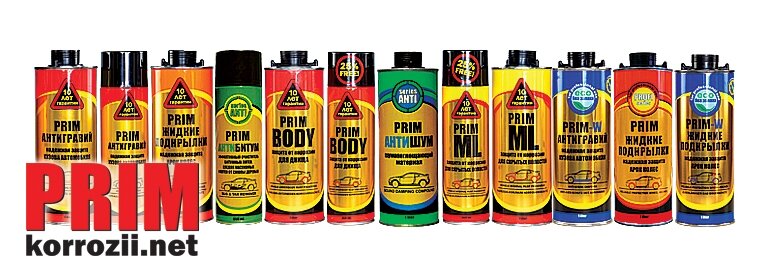Oil Change Additives Benefits and Potential Risks
When you consider oil change additives for your vehicle, you’re weighing a mix of potential gains and risks. These additives promise better performance, extended engine life, and cleaner internals, but not every formula is right for every engine. Misuse can backfire, leading to unintended problems or costly repairs. Before you settle on a solution, it’s worth exploring what sets these products apart—and what you should watch out for next.
Understanding Engine Oil Additives and Their Purpose
Engine oil additives play a critical role in modern automotive lubricants, addressing the specific challenges that arise in engine operation. While base oils serve as the primary lubricant, they often fall short in effectively managing the high temperatures, friction, and wear that engines experience under normal operating conditions.
Incorporating additives enhances various properties of the oil, including its viscosity and ability to protect vital engine components, such as piston rings, from wear. Furthermore, these additives contribute to maintaining engine cleanliness, which is essential for optimal performance.
One notable advantage of using quality engine oil with the appropriate additives is the potential for improved fuel efficiency. Research indicates that the right formulation can lead to more efficient engine operation. However, it is important to note that the concentration of these additives is crucial; applying too many can disrupt the lubricant's balance, thereby compromising its effectiveness.
To maximize the benefits of engine lubricants, proper maintenance practices must be observed. This includes considering the specific engine requirements, ensuring compatibility with existing oil formulations, and adhering to manufacturer guidelines.
By taking these factors into account, vehicle owners can make informed decisions that enhance engine longevity and performance.
Main Types of Additives Used in Engine Oils
Modern engine oils incorporate various additives that address specific operational challenges. Key among these are detergents, which mitigate contaminants and acids, thereby preserving cleanliness and protecting critical components such as piston rings.
Anti-wear additives contribute to the creation of a protective film on metal surfaces, thereby minimizing direct contact and subsequent wear.
Dispersants and antioxidants are also essential; they enhance the stability and longevity of the lubricant, thereby facilitating maintenance. Certain oil brands, such as AMSOIL, include friction modifiers, which can improve both fuel economy and overall performance.
Incorporating these additives into base oils is intended to extend the lifespan of the vehicle. However, it is advisable to conduct testing before introducing new additives to ensure optimal compatibility and effectiveness.
This approach can yield the best results in maintaining engine health and performance.
Advantages and Applications of Oil Change Additives
Oil change additives can offer significant benefits when used correctly, particularly in challenging driving conditions or in older engines. The inclusion of additives in engine oil can enhance lubricant performance, reduce wear on piston rings, and provide a higher level of protection for engine components.
Detergents and dispersants are particularly important as they aid in keeping engine parts clean, which can facilitate longer intervals between maintenance.
Research indicates that certain high-quality oil products, such as those formulated by AMSOIL, illustrate the potential advantages of combining advanced additives with superior base oils. These formulations can improve fuel economy and contribute to extending the lifespan of the engine.
For those operating vehicles under demanding conditions—such as extreme temperatures or heavy loads—utilizing well-researched and selected oil change additives may prove to be a practical strategy to enhance engine performance and longevity.
Limitations and Dangers Associated with Oil Additives
While oil additives can offer certain advantages, it is important to recognize the potential risks associated with their improper use. Excessive amounts of additives can disrupt the oil's balance, negatively impacting viscosity and leading to inadequate lubricant flow, particularly during engine startup.
Additionally, additives not approved by the original equipment manufacturer (OEM) can lead to clogged filters and damage to piston rings and emissions systems, which may result in increased maintenance costs.
Furthermore, low-quality additives may contain abrasive materials that contribute to accelerated wear in engines. Relying on these products can obscure underlying engine issues rather than resolving them.
It is essential to note that improvements in fuel economy and protection levels are not guaranteed with the use of additives. Therefore, utilizing only tested base oils, such as those from recognized brands like AMSOIL, and avoiding unverified products in your vehicle is advisable to ensure optimal engine performance and longevity.
Guidelines for Selecting and Using Engine Oil Additives
Before introducing any engine oil additive to your vehicle, it is essential to consult the owner's manual for manufacturer recommendations. Evaluating your engine’s requirements is important; issues such as excessive wear or elevated oil consumption may necessitate specific additives designed to address those conditions.
Compatibility between the selected additive and the base oil is critical, as improper combinations can potentially damage engine components, including piston rings. It is advisable to seek out products that have undergone third-party testing or hold certifications from reputable organizations, like AMSOIL, to substantiate quality and efficacy claims.
Additives should be introduced during routine maintenance intervals, adhering closely to the recommended dosage instructions. Excessive application can adversely affect lubricant viscosity and the overall performance of the engine, potentially leading to diminished efficiency.
In summary, while engine oil additives can offer certain benefits—such as improved fuel economy and prolonged longevity—carefully considering their application is necessary to ensure compatibility and effectiveness.
Conclusion
When considering oil change additives, you’ll want to weigh both the potential benefits and the possible risks. While additives can boost engine performance and longevity, improper use or selecting the wrong product could cause issues. Always follow your vehicle manufacturer’s recommendations and consult with a trusted mechanic before adding anything new to your oil. By staying informed and cautious, you can make sure your engine’s protected while maximizing performance and efficiency for the long term.








